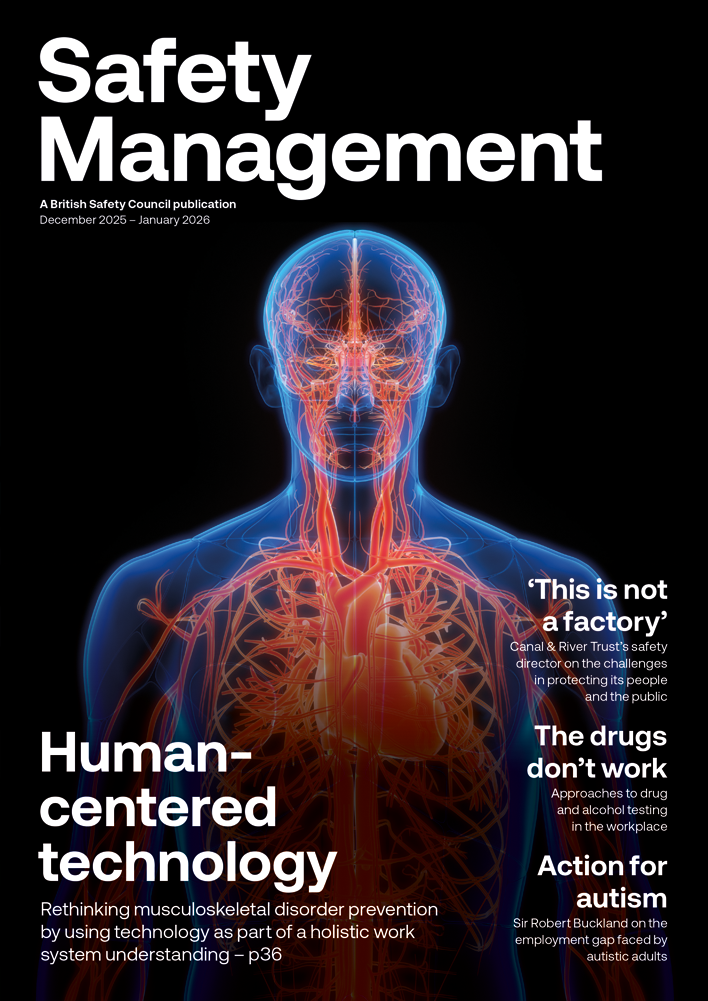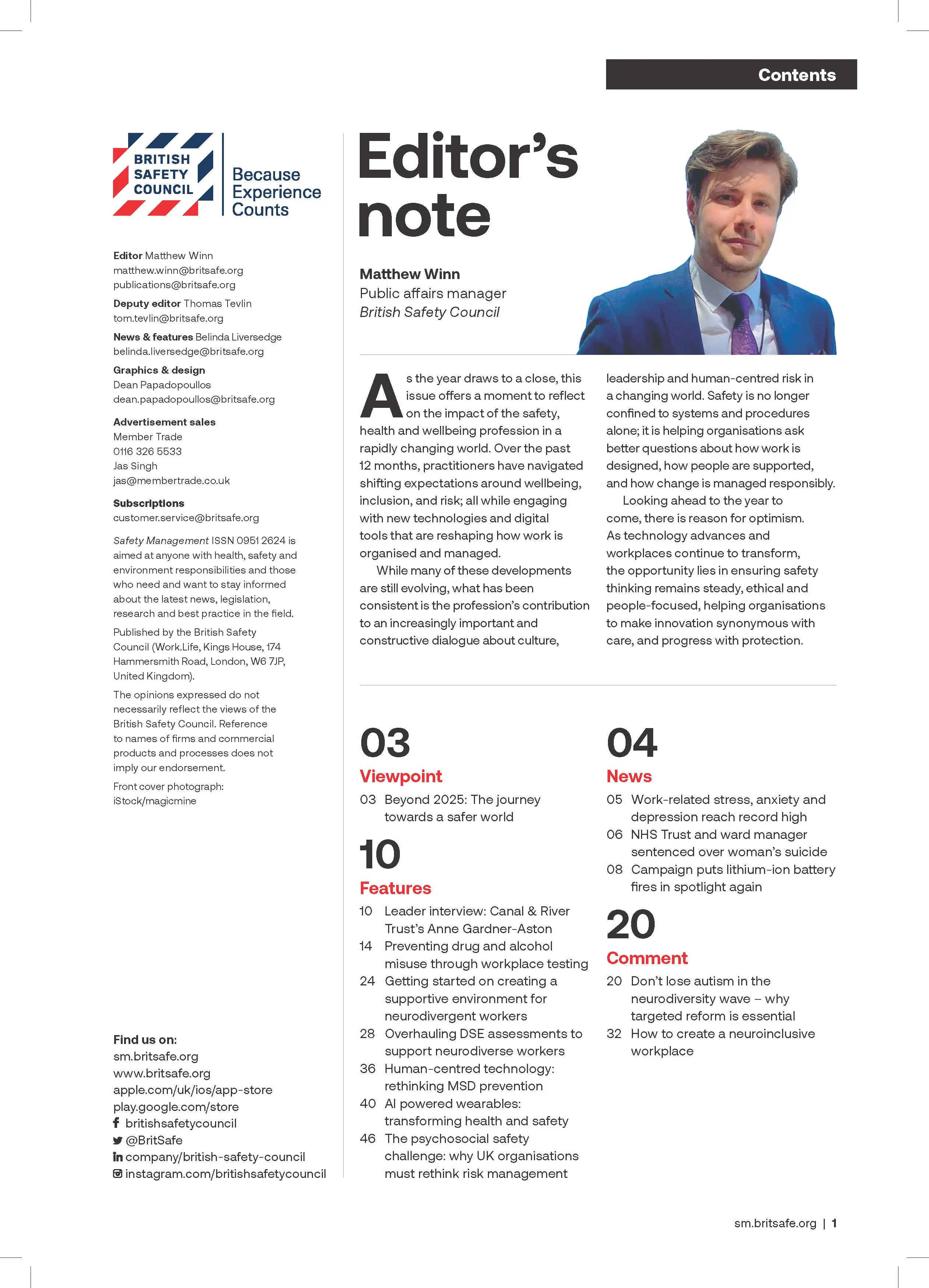That ‘we shout safety but whisper health’ was something regularly heard within the construction health and safety community before 2020.
Opinion
The ‘new normal’ needs good mental health
We had challenged ourselves to achieve a better balance between the two disciplines and raise the profile of health. Never did I imagine that 2020 was the year that the health and wellbeing of our workforce would really be our number one priority.
Covid-19 has been devastating and I do not want to detract from the harm that has been caused, but we are now starting to see how this crisis may bring positive change to the way we work forever. An exciting time for many of us in the H&S community that has been campaigning for health and wellbeing to be put higher up the agenda.
Working in the construction industry during this time, I’ve been really impressed by how it has responded to the pandemic. It collaborated and innovated to enable projects to restart, it pooled its resources and donated millions of its PPE supplies to the NHS, and somehow managed to build the Nightingale hospital in nine days.
 The construction industry has committed to improve the occupational and mental health of its people
The construction industry has committed to improve the occupational and mental health of its people
It’s shown me how resilient, inspiring, and dedicated the 3.1 million workers who keep this industry going are. But now it has another challenge, set by the Construction Leadership Council in its Roadmap to Recovery. The strategy – to be delivered over two years – aims to increase activity across the industry and accelerate the adjustment to the ‘new normal.’
Among the innovation, tech, procurement and collaboration models, is the acknowledgement that we need to improve the occupational and mental health of our people. An appreciation that without a happy and healthy workforce our industry cannot survive.
So, what does this look like for construction? Even with training programmes, campaigns, or improved access to health services, it won’t address some of the systemic issues our industry faces.
Our workforce will still be working away from home, will have limited job security and for the most part, be unable to adopt flexible working in the same way other industries can. What can we actually do to use the pandemic as a catalyst to change some of the causes of mental ill health in our industry?
At an organisational level, there are clear frameworks of how this can be done. The launch of Being Well Together is an opportunity for companies of all shapes and sizes to participate in a programme that will support you on a journey for improving worker wellbeing.
 Jennie Armstrong: "The pandemic has shown how resilient, inspiring, and dedicated the 3.1 million workers who keep this industry going are."
Jennie Armstrong: "The pandemic has shown how resilient, inspiring, and dedicated the 3.1 million workers who keep this industry going are."
However, for us as an industry, we have a lot more work to do. Clients have a responsibility to set realistic programmes that don’t require workers to work long hours or weekends or leave little time to participate in wellbeing initiatives on site.
Contractors need to look at how they employ our people, how can we ensure more of the workforce are directly employed and entitled to better working conditions? Finally, how can we all look to minimise conflict in contract management, something that can put us in fight or flight mode every day?
As an industry, I don’t think we have all the answers just yet but I do feel confident that if we take on this challenge like we do every other challenge, we really could build a healthy future for everyone working in it.
Jennie Armstrong is a trustee at the British Safety Council
OPINION

Alcohol – the negative impact on work and workplaces
By Dr Jamie O’Halloran, IPPR on 02 January 2026
New IPPR research shows that most employees expect their employer to play an active role in reducing alcohol harm. Senior staff, in particular, believe employers have an even greater responsibility. Yet in practice, many employees say they do not see their employer taking meaningful steps to minimise harm.

Beyond 2025: The journey towards a safer world
By Mike Robinson FCA, British Safety Council on 22 December 2025
As 2025 draws to a close, we reflect on a year of success and safety. It also allows us to look forward to the coming year, recognising that with each new year comes the unbridled hope and opportunity to create the safest year in human history for the workers of the world.

How to create a neuroinclusive workplace
By John Robinson, Schofield Sweeney on 09 December 2025
The modern workplace is a diverse environment. Most workforces will be made up of individuals representing the majority of the groups protected under the Equality Act 2010.



